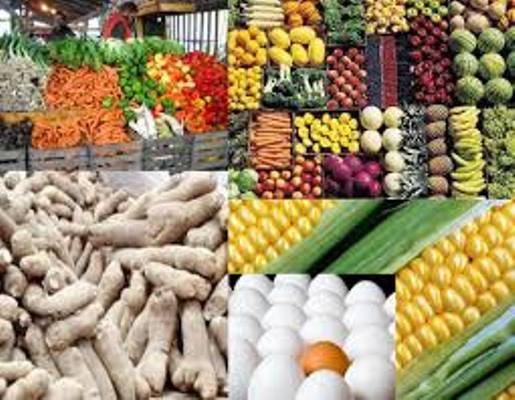
By Tanko Mohammed
Vice President Yemi Osinbajo has described post-harvest losses as the bane of agricultural production in Nigeria, as the World Food Programme (WFP) reported that more than $182 million was needed to “sustain lifesaving aid” to the country over the next six months.
.
Osinbajo presided over the virtual commissioning and handing over of the 200,000-capacity Yam Storage Facility at the Zaki Biam International Yam Market in Benue State also as WFP’s senior spokesperson, Ms Elisabeth Byrs, stated in a report by the United Nations.
As the report said “help and funding are needed urgently for millions of people hit severely by the effects of the coronavirus pandemic”, Osinbajo reported that Nigeria produces 17 million tons of yam annually, but loses up to 40% on account of inadequate storage and processing facilities.”
Osinbajo noted that post-harvest losses due to poor storage facilities for the nation’s agriculture produce would be a thing of the past if more storage and processing facilities like the new storage facility in Benue State are established around the country.
The 200,000-capacity Yam Storage Facility is part of the National MSMEs’ Shared Facility Scheme being implemented by the Federal Government under the National MSMEs Clinics put in place by the Buhari administration.
The Zaki Biam Yam market is said to account for about 70% of yams cultivated in the country, with over 200 trucks loading 2 million tubers of yams weekly from the state renowned as the nation’s food basket.
He noted that, despite this, “the market has had very little storage capacity and its infrastructural facilities are way behind its capacity and the size of commerce that goes on here daily.”
He added that, “following discussions between the Federal Government’s MSME Clinics project, the Benue State government and market stakeholders, it was unanimously agreed that this 200,000 capacity Yam Storage Facility should be located right here in Zaki Biam, Benue State.”
The Vice President noted that President Muhammadu Buhari was excited about the commissioning of the facility because “a major concern for him has been that the COVID-19 crisis does not in any way disturb agriculture and the food supply chain.”
WFP said the report include “conflict-hit communities ‘on life-support’” in the northeastern states of Borno, Adamawa and Yobe.
“We are concerned by conflict-affected communities in northeast Nigeria who already face extreme hunger and who are especially vulnerable.
“They are on life-support and need assistance to survive,” the report quoted Byrs as saying.
The three so-called BAY states, have been plagued by a decade-long insurgency that has spilled over into the Lake Chad region, the report said.
It remains among the most severe humanitarian crises in the world, according to the UN Office for the Coordination of Humanitarian Affairs (OCHA).
The report said about 7.9 million people, mainly women and children, were in need of urgent assistance in the region.
“That’s why WFP is distributing now two months’ worth of food and nutrition assistance in IDP camps and among vulnerable communities.
“This is to ensure that people have enough food while they are on full or partial lockdown”, Byrs reportedly said.
WFP said needs were also growing nationwide following a sharp drop in international oil prices since the outbreak of the virus.
As of Tuesday, there were 13,464 confirmed cases and 365 deaths from COVID-19 in the country, according to the Nigeria Centre for Disease Control (NCDC).
Byrs said no fewer than 3.8 million people mainly working in the informal sector were at the verge of losing their jobs “amid rising hardship”.
She said the number could rise to 13 million if movement restrictions (inter-state restrictions) continued for a longer period.
“This would add to the almost 20 million (23 per cent of the labour force) already out of work.
“In a country where about 90 million people, 46 per cent of the population, live on less than two dollars (N752) a day, this is a real concern.
“The urban poor who depend on a daily wage to feed themselves and their families have been very hit by movement restrictions to contain the spread of the virus,” the WFP spokesperson said.













